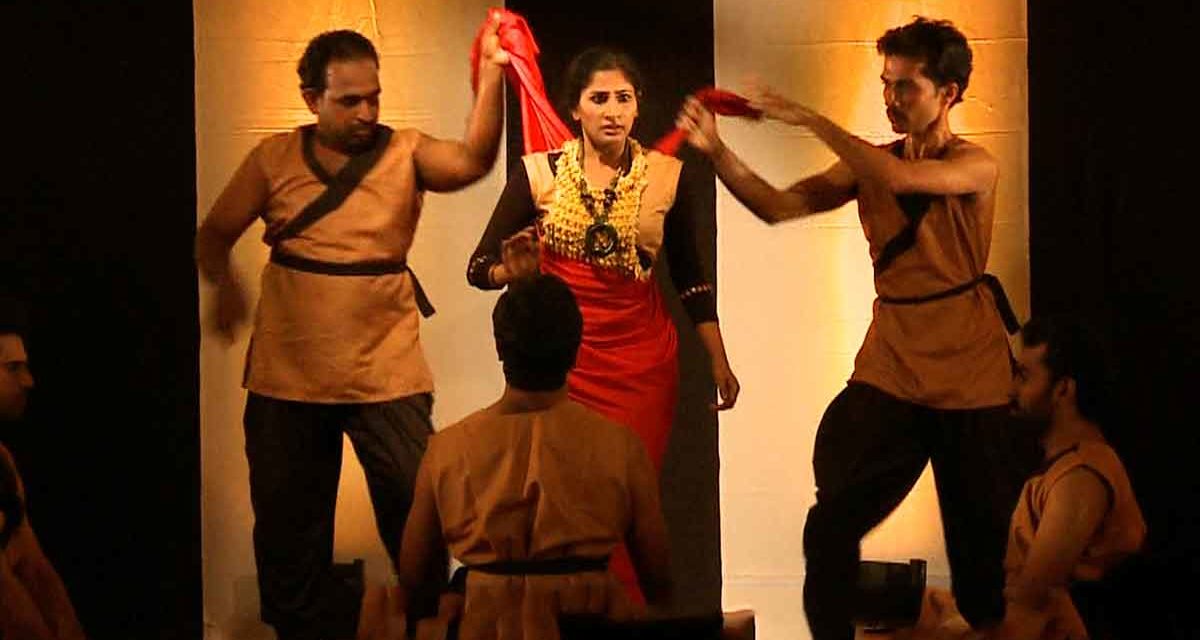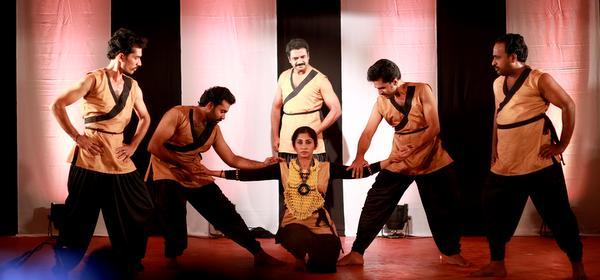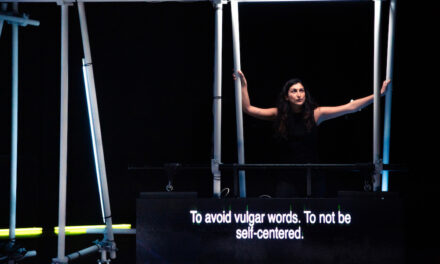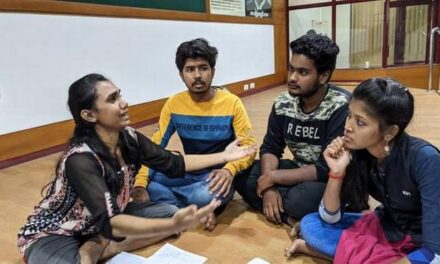Kimartham Draupathy, Aswathy Vijayan’s Sanskrit play, is about predicaments that women face even in the present day.
When Kimartham Draupathy (Why Draupathy?), a Sanskrit play, premiered in the city last year, the cast and crew of Kanal Samskarika Vedi were a bundle of nerves. Aswathy Vijayan, who conceptualized and directed the play, was prepared for the worst. But her fears were unfounded. Not only did they get an overwhelming response from the crowd but they were also appreciated by the late Kavalam Narayana Panicker, playwright, and doyen of Sanskrit plays.
As the curtain goes up on the play today, Aswathy recalls that theatre itself was an acid test for her, a graduate in polymer chemistry.
“After my graduation, I started working in Technopark but I was not cut out for that and left the job. Although I was at a loose end then, doing my post graduation in Sanskrit and learning Hindi gave me a new direction. Later, I did AIR’s VANI certificate course for radio programme presenters and did many programmes for AIR. That exposed me to many facets of theatre,” says Aswathy. She has also dubbed for serials and translated Hindi serials for Malayalam channels.
In the meantime, she secured employment in the Department of Information and Public Relations as an information assistant. However, she quit that to do her MPhil in Theatre Arts and Film Aesthetics at Centre for Performing and Visual Arts, University of Kerala.
The Centre opened a new world for 34-year-old Aswathy who soon became a part of Kanal Samskarika Vedi, a cultural organization founded by the alumni of the Centre. “Kanal is such a treasure house of talent that I also fell into the groove,” she says. Patronized by the late Vayala Vasudevan Pillai, the group stages a new production every year in his memory.

Kimartham Draupathy, a sanskrit play by Kanal Samskara Vedi was staged for the first time at Hassam Marakar Hall as part of the 7th anniversary celebrations ‘Kanalkkottam-2015’ in Thiruvananthapuram.
“When a suggestion came up that a woman should do a production and the responsibility fell on me, Draupadi was the first character that came to my mind because I have been so much in love with the character. Nevertheless, the group was surprised when I asked if I could do the play in Sanskrit. There were doubts about whether people would come to watch the play and how they would market it. But gradually they started enjoying learning the dialogues,” says Aswathy.
The play looks at Draupadi as a normal woman who had to go through problems at every phase of her life. “Vasudevan Pillai sir used to tell us that a play should go beyond the boundaries of time and region and should be relevant in the present context. Draupadi is a representative of women in every generation. The play presents different dimensions of her life – a girl who is robbed of her childhood, a woman who yearns for true love but is forced to share her life with five men, a mother who loses her five children… Her friendship with Krishna is also explored. She questioned the injustice meted out to her by those in authority and a patriarchal society and is all alone in her battles. The life of a woman today is no different. She has no freedom of choice and is continuously judged at every point. It is not a women-centric play, instead, it invites your attention to what a woman goes through,”says Aswathy.
Devaki Rajendran plays Draupadi in the 70-minute play along with Arun Nayar, Santhosh Venjaramoodu, Kannan Nayar, Hazim Amaravila, Raaj Anandh and Reju Koliyakkode.
This article was originally published by Athira M. on the Hindu.com. Reposted with permission. Read the original article.
This post was written by the author in their personal capacity.The opinions expressed in this article are the author’s own and do not reflect the view of The Theatre Times, their staff or collaborators.
This post was written by The Theatre Times.
The views expressed here belong to the author and do not necessarily reflect our views and opinions.






![Alice Birch’s “[BLANK]” at the Donmar Warehouse](https://thetheatretimes.com/wp-content/uploads/2019/10/image-3-440x264.jpg)












